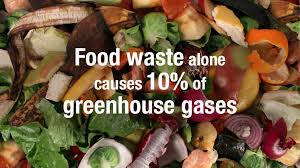‘
The House of Lords today debated Food Supply and Food Security for the UK’s 66 million people during Covid 19 – it should consider the need for seasonal workers, the challenge faced by the unemployed and low income families, and the scandal of food waste

My Lords, I have two minutes and two questions; one on seasonal workers and one on food waste.
To ensure that food is picked and harvests are brought in, can we please look again at the overly rigid, target-focused December 2018 White Paper and remove the 70,000 seasonal workers from net migration figures, creating a separate category?
Will the Government also urgently look again at relaxing work prohibitions on asylum seekers who are resident in the United Kingdom, enabling them to help in this year’s harvesting of crops?
On food waste, it is a scandal of epic proportions that a throwaway culture can trash nearly a third of all food produced, while nearly 800 million people do not have enough food to eat to lead healthy, active lives—that is around one in nine people on this earth.
As my noble friend Lady Boycott eloquently reminded us in her speech introducing this debate, food inequality in the United Kingdom is growing too. Some 30% of food produced globally is currently wasted.
That is an economic and ethical outrage.
Reports from the institute of engineering and the London School of Hygiene & Tropical Medicine say that 6% to 10% of greenhouse gases are produced by food waste.
In the course of one recent year, around 100 million tonnes of food was dumped in Europe.
Wasted food would feed the estimated 1 billion people who are without food or hungry today, while another 1 billion could be fed if we curbed overeating and obesity, which was referred to by my noble friend.
It has been calculated that if the world’s food waste mountain was piled up, it would be the third largest emitter of greenhouse gases, after only the USA and China, accounting for 10% of man-made greenhouse gas emissions.
Staying close to the land, farming sustainably, tackling waste and changing patterns are long overdue.
That would bring many environmental and health gains.
In Chinese calligraphy, the word “crisis” can also be read as the word “opportunity”.
I hope that the Government will indeed turn this crisis into an opportunity.
==========================================================================
The immediate crisis has thrown into sharp relief the crucial importance of 70,000 seasonal workers – not least in the horticultural sector and where mechanisation is not an option. And beyond the pandemic we will need to finesse our immigration rules to ensure our ability to feed our population of over 66 million people – and to support the agri-food industry, worth £108 billion to the UK annually.
The Government needs to confirm that those changing needs will shape our policies rather than arbitrary and rigid targets and when will we see further details about the expansion of the seasonal agricultural visa pilot scheme – which expires in eight months from now – and make a decision on making it permanent. It might be helpful to remove seasonal workers from net migration figures and create a separate category.
We need to look again at the December 2018 White Paper on immigration and revamp what it has to say about seasonal workers.
We should relax the work prohibitions on asylum seekers, already in the UK, enabling them to help harvest this year’s crops; that just as the World War Two land girls were found accommodation near farms, we will work with farmers, agricultural communities and local authorities to do the same.
Is it really the case that the call for a Land Army – and “Pick for Britain” – which has targeted the two million furloughed and laid off staff, who were working in restaurants, hotels, bars and pubs – has failed to gain traction because of practical issues such as accommodation and impossible, commuting distance?
The Alliance of Ethical Labour Providers originally received 50,000 applications but only 112 people actually took up roles. What analysis have we made of the reasons for this?
Beyond this, and with 8 million adults experiencing food insecurity since the outset of the lockdown – including 5 million households with children – and 200,000 children having to skip meals – the pandemic has seen volunteers delivering groceries to those in need but especially for low income families, some reliant on food banks, and with a wave of unemployment, social distancing and other Covid challenges will only add to the challenge of accessing healthy foods. An uplift in child benefit would help.
And then there is the question of waste. 30% of food produced globally is currently wasted – having a value of around £20 billion annually.
It costs an average of £500 each year for every UK household.
Reports from the Institute of Engineering and the London School of Tropical Medicine and Hygiene suggest that between 6% and 10% of greenhouse gases are produced by food waste, that around 100 million tonnes of food was dumped in Europe in the course of one recent year and that if wasted food was available to eat, it would feed 1 billion people who are estimated to be without food or hungry today?
It’s a scandal of epic proportions that a throw away culture can trash nearly a third of all food produced while nearly 800 million people in the world do not have enough food to lead a healthy active life – around one in nine people on earth

A United Nations report by 107 scientists highlights how, if you tackle food waste – which accounts for up to 10% of man-made greenhouse gas emissions – and simultaneously tackle obesity and overeating by 2 billion of the world’s population – you positively impact hunger, famine, global warming, and poor health. Other environmental benefits which come from changing patterns of food consumption, include the degradation of soil and deforestation.
The food waste epidemic is an ethical and economic outrage.
It has been calculated that if the world’s food waste mountain was piled up it would be the third largest emitter of greenhouse gasses – only after the USA and China.
A central part of the answer to food insecurity is the old saying “waste not, want not.”


